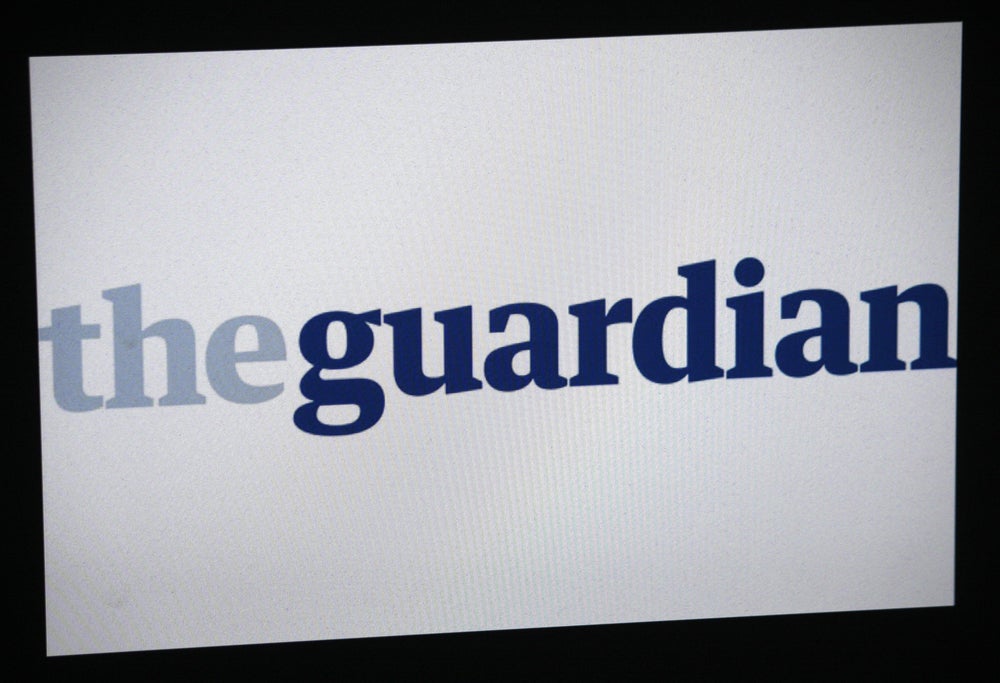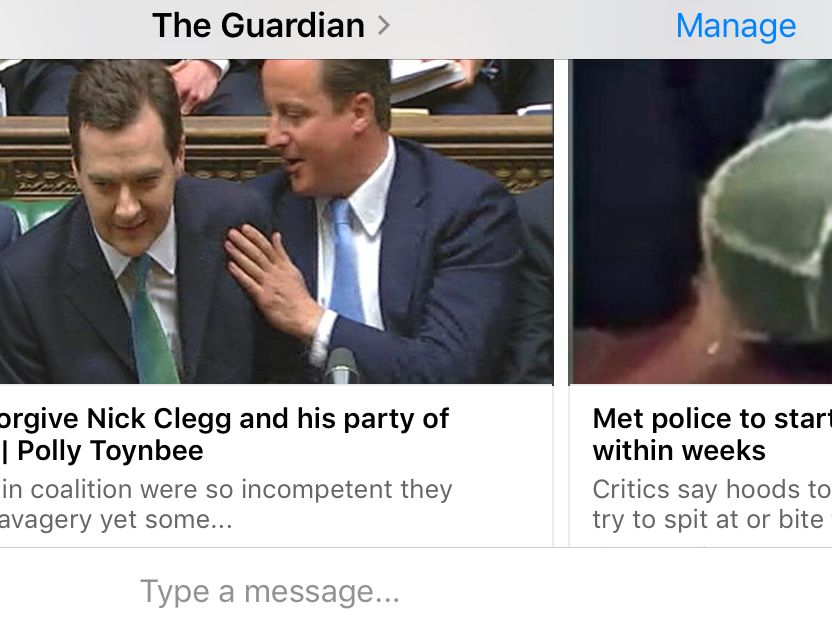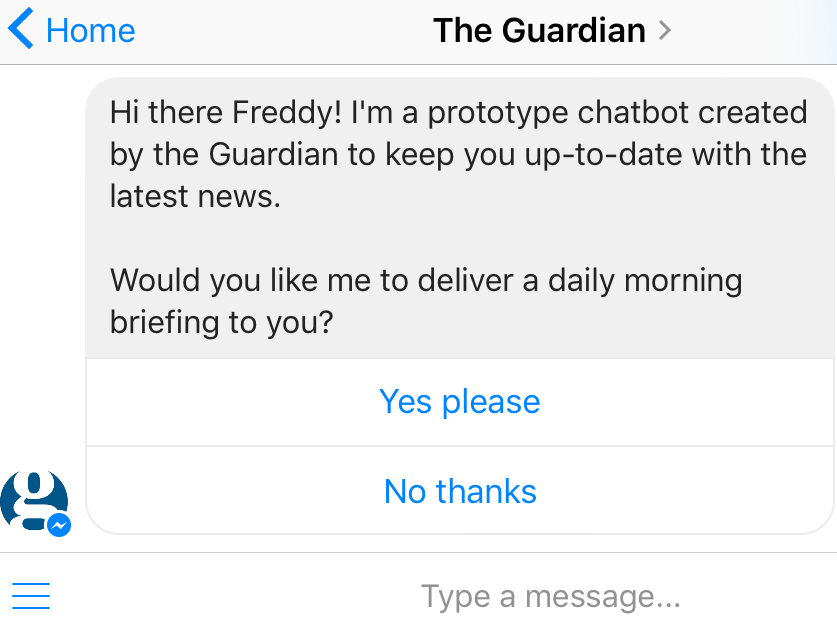
The Guardian has launched a news chatbot on Facebook Messenger in a further experimentation with the format that it first used to share recipes this summer.
A chatbot is a computer programme that a user can interact with in a conversational, human way. The idea being that you can ask it any question and it will give you the answer.
Send a message to the Guardian on Facebook Messenger, whatever it may be, and you’ll be met with a polite response from the “prototype chatbot” asking if you want a daily news briefing.
Say “yes” and it will ask you what time you want it delivered in the morning and whether you’d like to see the headlines or the most popular stories of the moment.
Either choice will bring up a selection of about five news stories within the messenger, each with a picture, headline and top line taken from the Guardian website’s home page.

News snippets from the Guardian chatbot
It is currently the only task the virtual assistant can perform – asking it questions or making other demands will prompt a confused reply – but more functionality seems to be on the cards.
It follows Sous Chef, the Guardian’s cooking chatbot that launched in June and enabled readers to use the bot as a sort of interactive search tool for recipes (or rather articles about recipes).
Guardian social and new media editor Martin Belam told Press Gazette: “We were just interested in having a look at the technology and seeing what could be done.
“What we envisaged as a product was something that could help you cook – at least with the method bit – and we have a great archive of recipe content.”
Creating Sous Chef meant the “heavy lifting” in creating a chatbot had already been done, said Belam, including having a person pretend to be the bot while engaging with early adopters.
“We really didn’t know how users would actually interact with the chatbot so what we did first of all was we did a Wizard of Oz testing”, he said.
“It was so we could just get a sense of what people would say to a chatbot. People really do chat to them very naturally.”

The Guardian news chatbot greeting
Applying the trend for artificial intelligence to news is yet another experiment in new technology from the Guardian, which has also tried out virtual reality (VR) storytelling.
In April it released VR video 6×9 that aimed to give viewers an insight into solitary confinement by putting them inside a virtual US prison cell. Similar experiments have been made at the BBC and Sky News.
Both mediums are in their infancy, especially when it comes to sharing the news.
But, said Belam: “I’m always fascinated by how we can use technology to get the best of our journalism in front of the widest possible relevant audience. This [chatbot] seemed like a way of doing it.”
Press Gazette understands the number of subscribers to the Guardian news chatbot is fewer than 1,000, but Belam said the amount of unsubscribes was “very low”.
“People seem to be enjoying it so at the moment it seems to be a useful thing,” he said. “It’s something we are experimenting with.
“It’s really important for news organisations to be prepared to have that learning process.”
The major problem for the chatbot’s development is that technology hasn’t quite caught up with the concept yet. Artificial Intelligence is still being pulled from science-fiction into reality.
“We kind of realised that the goal of having a news chatbot where we go: ‘Hey, what’s the news today in China’, is a long way off,” said Belam.
“But in the mornings we do a summary on Twitter for the Guardian. That goes out and gets a really good response and engagement with users and we suddenly thought, could we deliver that on messenger as well?”
Hence the morning briefing format that has been the news chatbot’s sole purpose since it was softly revealed to the public on Friday, 26 August.
It can expect some more features to make it feel “more native to the messenger environment” – more chatty in other words – but Belam is clear that chatbots aren’t about to revolutionise the news industry.
“We don’t think messenger bots are going to be the biggest thing in journalism over the next couple of years,” he said.
“But it’s a platform people are interested in and part of my role is thinking about people spending an awful lot of time on their phones doing things that aren’t visiting our website, so what can we do to get them to visit our journalism while doing what they are doing on their phones?
“I think people will experiment with the bot. I’m not sure that they are the future of everything, but they are definitely an interesting thing to experiment with.
“I just love experimenting with stuff and finding new ways of trying to tell stories and get them across to people.”
Email pged@pressgazette.co.uk to point out mistakes, provide story tips or send in a letter for publication on our "Letters Page" blog
